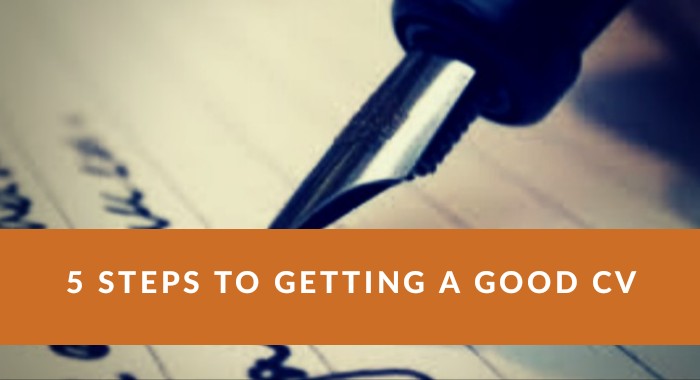In the search for a white collar Job, your CV is of great important as it is what the company sees first before giving the grace of being invited for and Interview. So getting your CV right is paramount as we all what to land that big Job. So first of all, let’s get a good understanding of what CV means.
What’s a CV?
A CV otherwise known as a Curriculum Vita, is a concise overview of a persons experience and qualifications. CV sometimes is been referred to as résumé (American) . It’s a personal documentation of one’s qualifications used to market an employee to prospect employers.
A CV is demanded when seeking a job.
5 steps to getting a good CV
Use a smart CV format
In every job application, you are going up against over 50 to hundred others who are applying for this same job as you are. Some might be more qualified while some might be same grade level or some well trained. In regards to this, It’s quite doubtful to think that and employer will take out time to read each and every application submitted. This is how its done, they scan through the CV in seconds and here you know that first impression really do matter. If your CV is not presentable, neat, or smartly organized, you’re losing the job at this level.
If you choose to separate your sections with lines, stick with it. Put its sections in different boxes, give spaces in between as this will give the employer room to breathe while reading.
Here is a smart format on how your CV should look;
- CV Header with your Contact Information
- Personal Profile: CV Objective or CV Summary
- Your work Experience
- Educational Background
- Skills
- Additional Sections
If you’re fresh out of the higher institution, and barely have a solid work experience, do well to put your educational background first.
While getting to work in the various sections, also have in mind this very important tips;
- Choose a clear bold font
- Be consistent with your CV format
- Don’t choke you work, give spacing
- Get clear print out of your certificates
- Be brief and informative
Rightly add your contact information
You want the employer to get back to you so you have to list out your name, address, phone number and email at the head of the page. It is wise to use a larger font on your name. So the employer will know who they are reading about.
Use a professional personal profile
This is an optional part of a CV, and most people tend to skip this and job straight in to there job experience. But I recommend you give a brief personal profile of yourself as it will give the employer a more in depth knowledge of you as a person than just a random guy apply for a post. This is more like a short summary of you entire CV. It should look like this;
I’m a good editor with 15+ years of experience in the intensive and fast working ability at Soundcity Tv. Seeking to leverage management experience as Chief Editor at Hip TV, helping to implement new staff training programmes.
Give an elaborate detail of your work experience
This is a very important aspect of your CV as it gets more view than any other section in the CV. Don’t just state your past positions and walk away. The employer already knew you worked before, all they want to know is how well you handled those positions, the problems and their appropriate solutions.
In this section, focus more on your measurable achievements and less on your duties. Also careful of the verbs in which you use. Use verbs as “created”, “analyzed” instead of “duty of creating”. Always give this accomplished feeling in your statements.
Also tailor your CV to the job description and give them the idea of being able to handle the job well.
Give a solid educational background
Create a section for your educational achievements. In the case of where you’re fresh out of the higher institution with little job experience, state your education first. List them as follows;
- Graduation year (if you’re still studying, enter your expected graduation date)
- Your Course
- Your degree
- Institution name
More tip…
- Put in relevant skills that fit in the job and achievement
- Create a section for your interest
- Create a section for other information
- Complete your CV with a cover letter.
- Cross check your spelling
With this few tips, you will be looking forward to getting called for an interview, and here are things you should never try in an interview.



